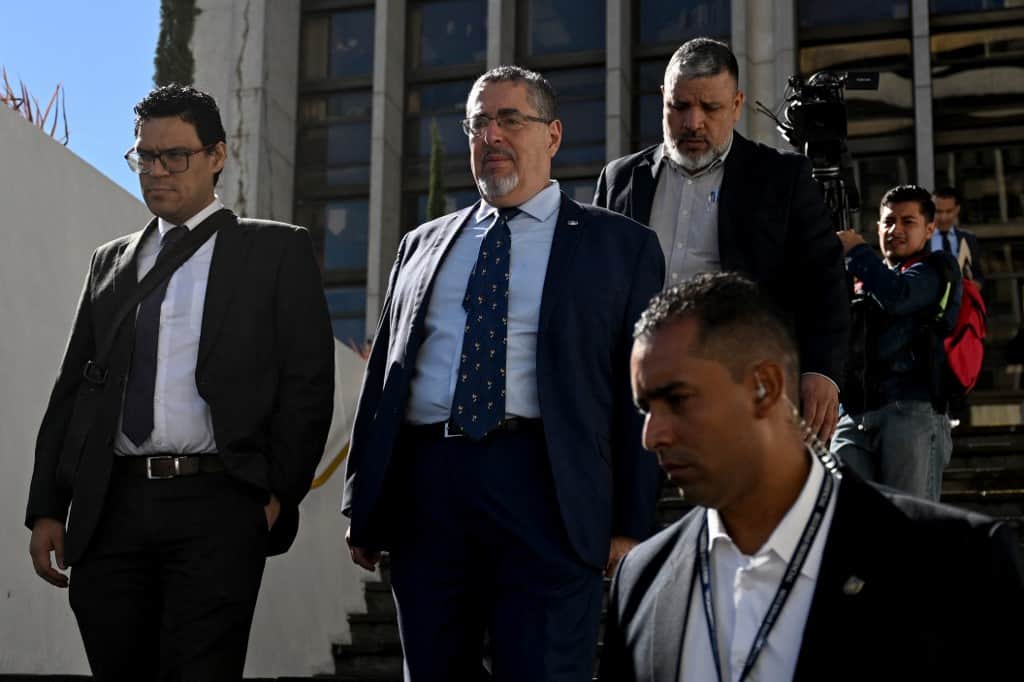Just one month before the presidential inauguration in Guatemala, the public prosecutor’s office is unrelenting in its onslaught against president-elect Bernardo Arévalo, who is denouncing an ongoing coup d’état to prevent him from assuming power. Why this offensive and how far can it go?
Since Arévalo made it to the run-off election in June, which he comfortably won in August, the public prosecutor’s office sought to dissolve his Semilla party, requested the removal of his immunity, accused the electoral court of irregularities and, in its most recent advance, considered the elections “null and void”.
The Attorney General Consuelo Porras, sanctioned by the United States for being considered “anti-democratic” and “corrupt”, claims that the Public Prosecutor’s Office is fulfilling its duty to investigate.
However, analysts estimate that behind this lies the powerful conservative elite of Guatemala.
What does the public prosecutor’s office argue?
It contends that the elections must be annulled due to irregularities found in the investigation of the vote count records, which were seized during raids of the Supreme Electoral Court (TSE) offices in September.
The results of the investigation, published last Friday and handed over to the TSE on Monday, indicate that there are about 2 million votes -out of 5.5 million cast- for which “there is no certainty due to all the illegalities and falsehoods” in records for which they do “not have the originals”.
The TSE stated last Friday that the election results are “unalterable”, while the United States, the European Union, the OAS and the UN condemned what they considered an attempt to rupture the constitutional order.
The public prosecutor ́s office also said that “32% of the members” whose names were used in 2018 to create Semilla “are false” and that the party did not record some electoral campaign funds, so it accused Arévalo of “possible” money laundering.
The president-elect denied these accusations and described the actions of the public prosecutor’s office as a “blow to the heart of democracy”. “We are here to fulfill our obligations, whether anyone likes it or accepts it (…) not only by law but also by the mandate from above (God),” recently said Attorney General Porras.
What’s behind the offensive?
Guatemala, where 60% of its 17.6 million inhabitants live in poverty, ranks 30th on the global corruption index, among 180 countries, according to Transparency International.
Edie Cux, director of Citizen Action, the local version of that NGO, stated that political and economic power groups “see as a threat” the son of Guatemala’s first democratic president, Juan José Arévalo (1945-1951), promoter of social reforms.
“The public prosecutor’s office acts as an instrument of these traditional power groups, which even have links to organized crime,” said Cux.
Carmen Aída Ibarra, of the ProJustice civil movement, said there is a “web of corruption” involving “congressmen, businessmen, mayors” and other officials, in bribes, awarding of public works contracts “without integrity” and overpriced contracts.
These groups also fear the end of the dynamic of “electing magistrates, prosecutors” and other officials based solely on political interests, according to Miguel Ángel Sandoval, who studied sociology at the Paris School of Advanced Studies in Social Sciences.
Promising an anti-corruption fight, Arévalo and Semilla – created by intellectuals and academics – gave hope to a country with several former presidents convicted or implicated in corruption.
The 65-year-old sociologist breaks with the continuity of decades of conservative parties to which current President Alejandro Giammattei belongs, who supports Porras and whose administration saw prosecutors and judges reporting acts of corruption forced into exile.
How far will the public prosecutor’s office go?
For constitutional lawyer Edgar Ortiz, “the road to January 14 will have many obstacles”. “The public prosecutor’s office has a lot of power and an intimidating effect. This is a test of political muscle,” he added.
Cux agreed that “the attacks will continue, with a clear intention to wear down and intimidate Arévalo so that he governs in fear”.
So far, he pointed out, the Armed Forces have remained on the sidelines, but if the public prosecutor’s office succeeds, “its balance will be tilted by the United States and international sanctions or the guarantees it receives from the power groups”.
Sandoval believes the public prosecutor’s office “can do no more”: “The limit was made very clear by the TSE. And organized society accepts nothing less than Arévalo taking office.”
But Ortiz warns that “the standards of legality have been broken” in Guatemala. Everything could end up in the Constitutional Court (highest judicial body), whose resolutions, according to analysts, have not been forceful enough to stop the public prosecutor’s office.






